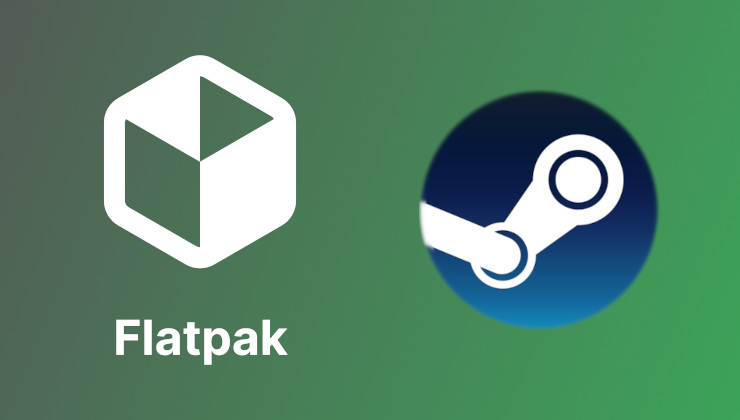During the Microsoft Build 2020 developer conference, Microsoft has raised a number of eyebrows at their Linux plans. We've had a lot, and I do mean a ridiculous amount of people emailing in and messaging across various places about Microsoft. So, to get it out of the way and provide you a place to comment, here we are.
Microsoft put up a developer blog post titled "DirectX ❤ Linux", which is a nice bit of PR bait. In reality, it means nothing for the standard desktop Linux. It's focused entirely on the Windows Subsystem for Linux which Microsoft tightly controls and DirectX itself remains firmly closed source. Not only that, this current implementation relies on pre-compiled user mode binaries that ship as part of Windows itself. Right now it seems to also be focused on CUDA and AI / Machine Learning, however, they also announced Linux GUI applications will eventually be supported on WSL as well.
A Microsoft developer even said on the Linux Kernel mailing list, that there's "no intent" to have people coding for DX12 on Linux. Although another developer also said they "consider the possibility of bringing DX to Linux with no Windows cord attached". That's just words for now though. I wouldn't read much into it.
That's not all, they also announced the Windows Package Manager under an MIT license, which works much like the ones on Linux do in terminal. Better late than never.
Going even further, Microsoft also announced .NET MAUI, an "evolution" of the Xamarin.Forms toolkit which Microsoft said "supports all modern workloads" which once again did not mention Linux anywhere. However, to be properly clear, at least .NET MAUI should work on Linux like Xamarin.Forms but be entirely community supported (as noted on GitHub). Oh and Maui is already used—oops? It's GVFS all over again.
First they embraced Linux doing away with the Ballmer era of "Linux is a cancer", now they're extending a branch saying they were "on the wrong side of history" with open source and now they continue the extending. How long before extinguish phase starts (EEE)? Don't be fooled about Microsoft's stance and their aim here, it's not because they love Linux. They're going where the developers are to continue pulling people to Microsoft services. Nothing more.
If any of it concerns you: I hope you put that energy and effort into continuing your support of the Linux desktop. Help it to grow and prosper. Support your favourite distribution, your favourite application and/or game developer by throwing some money at them.
I disagree. Actually, I think people use the "EEE" expression too much and too loosely. It is/was a fairly specific strategy; many of the things Microsoft did to nobble competition were not "EEE". The key "E" is the middle one: Extend. If that's not happening, it's not really "EEE".Just a sidenote: If this is some kind of a long-term strategy of MS's, such a thing as an immediate adoption might not be really important.That. I think it's important to bear in mind that “extinguish” doesn't necessarily mean the elimination of competition; it's about the elimination of the threat. Microsoft EEE'd the Mac with Windows. Apple's still there, the Mac is still around, but the existential threat it posed to Microsoft's DOS business in the late '80s is no more. MS even owns part of it.
Think of EEE more in terms of keeping your friends close and your enemies closer than a T-Rex devouring everything in its path. And yes, in the same way that (I believe) Valve wants to make Steam OS the best way to play Windows games, I suspect this is part of a move to make WSL the best way to develop Linux software. Or something like that.
The point of EEE is, you have a competitor and they have a technology. You want that technology to stop competing with you and your technologies. You could try to freeze them out, but it's looking like that might not work; it's a good technology and people like it. So instead you say, "That's a great technology! We're going to be good citizens and do it too!" Then, when people are used to doing the technology with your stuff as well as their stuff, you say, "We love the technology so much we're going to make improvements!" and you add some functions, ideally useful ones but at any rate ones you can get people in your ecosystem to start using. Now people using your stuff can use your version and their version, but people using their stuff can only use their version. If you're bigger, that's a big incentive to switch to using your stuff, not so much to take advantage of the new features themselves, but just so you're not stuck with incompatibility problems. That's Embrace, Extend, Extinguish. It's part of how they (briefly) won the browser wars. It is not how they got rid of Lotus 1-2-3, for instance.
Well, the Linux foundation is already owned by M$ and Google because of all the dollars that flow in so, the only person we can trust there is Linus.
Who is sponsoring Linus Torvalds again so he can work full time on the kernel?
To Linux users - don't buy the bait. Use proper Linux, not some WSL surrogate.
Last edited by Shmerl on 20 May 2020 at 5:46 pm UTC
I really don't trust the Linux foundation
Ah! Ok... This what it's all about. The only thing that I can say is that we have to trust that it's going to continue to be the way it's been for the past few years. Many conflicting/opposing interests are supporting the Linux Foundation and should act as a counter power to Microsoft's inlfuence. It's not like MS is the sole investor.
I didn't say it was. I even mentioned Google. Well if you want to trust them, then it's on you. Everyone is free to act however they like. I keep trusting Linus only and his work as the Kernel maintainer
Saying that I trust them is exagerated, but saying that I trust in the Foundation's structure is more accurate. I may be naive though. As for code review and this is the most important part, from what I understand, they have awesome folks working on that, not only Linus.
Indeed. At least when he retires there's people to pass the torch to
Well, the Linux foundation is already owned by M$ and Google because of all the dollars that flow in so, the only person we can trust there is Linus.
Who is sponsoring Linus Torvalds again so he can work full time on the kernel?
Of course they're are not that dumb to stop paying him. He's Linux foundation's Golden egg goose if you know what I mean.
And now i’m thinking how much better it would have been if GNU Linux was released under GPLv3. In that case we could sue Microsoft (never name a company after your penis).
Ignoring the penis joke and taking your comment seriously (will I regret it?), how would GPLv3 allow us to sue Microsoft over this?
They are just shipping proprietary libraries and drivers with a linux distribution, which is not something that any GPL forbids, to my knowledge.
The only change from GPLv2 to GPLv3 that comes to mind here is the tivoization ban, but I don't see how that would apply here.
AFAIK, clause 14 says specifically that GPL3 programs cannot be linked against proprietary software either dynamically or statically. So Microsoft would either need to make DirectX GPL3 compatible (MIT or more copyleft), or not be able to pull this stunt by virtue of a Copyright violation lawsuit. They’d probably settle, but at least they wouldn’t get away with it.
but in my mind the reason they're working so hard on getting WSL2 working, and even with GUI applications is so they can try to prevent the flow of users away from Windows 10. I'm not talking about those that freak about the telemetry and privacy issues, they've already switched to Linux.
I'm talking about the IT groups that are getting requests to have a certified Linux system for corporate use. If 'But I have special tools that I need to use that are not available to Windows, I need to be able to use Linux to do my job!' can be answered with 'Use WSL!' then Microsoft wins the lockout war.
Also, I'll leave this here for creepiness.
Linux localhost 4.4.0-18362-Microsoft #836-Microsoft Mon May 05 16:04:00 PST 2020 x86_64 GNU/LinuxLast edited by slaapliedje on 20 May 2020 at 6:46 pm UTC
As a side note, at a previous company there were a good many developers who had two machines: the corporate standard with Windows for email andWSL1's performance is so bad, that's why they gave up on an integrated kernel, and basically WSL2 is just a VM inside a Hyper-V instance. Which is also why it is taking them so long to release it, because Hyper-V is not great at running Linux either. VMware Workstation is much faster at it.spying on employeessecuring important documents, and then the development machine with GNU/Linux for actual development work. In this case, cygwin didn't cut it, there was a need for a full GNU/Linux environment.
I don't know what they're up to now, but I can see them thinking that WSL might be used to reduce the number of machines in the office, if it can offer what is needed. I don't really know how well it works because I've no longer any such use case and no desire to have a Windows 10 machine of my own, but I really couldn't fault the old workplace if they find it useful.
Just a pity they couldn't go the route of allowing a corporate standard with GNU/Linux desktop in the first place, because that would have solved all the problems.
But when you have a corporate network management team that says no virtual machines because it has to be managed by them, then WSL2 is out the window anyhow, and you're stuck with WSL1.
Just a pity they couldn't go the route of allowing a corporate standard with GNU/Linux desktop in the first place, because that would have solved all the problems.
Normal companies allow it. Those whith thick skulled IT might not, since they don't want to spend money on anything extra. And Linux support costs money too. The funny thing is, that even supporting WSL would cost them resources and time. WSL is pretty pointless in comparison with proper desktop Linux IT support like Google, Mozilla, RedHat and others do it.
Also, since WSL2 moved to Hyper-V, I don't get a point of it anymore. It's not reverse Wine-like idea anymore, it's a VM. So just run Linux in VirtualBox or something if you are in such situation. At least you'll be using an open source virtualization.
Last edited by Shmerl on 20 May 2020 at 7:06 pm UTC
Last edited by Shmerl on 20 May 2020 at 7:10 pm UTC
The unfortunate truth is, most of the IT people (the ones that have to manage laptops, the active directory, user management, etc) are NOT going to be the people with Linux experience. Anyone with good Linux experience that'd be able to set up the management will be more likely in the position of Linux system administrator (or that new generic thing SRE). Because I mean why waste talents?Just a pity they couldn't go the route of allowing a corporate standard with GNU/Linux desktop in the first place, because that would have solved all the problems.
Normal companies allow it. Those whith thick skulled IT might not, since they don't want to spend money on anything extra. And Linux support costs money too. The funny thing is, that even supporting WSL would cost them resources and time. WSL is pretty pointless in comparison with proper desktop Linux IT support like Google, Mozilla, RedHat and others do it.
Also, since WSL2 moved to Hyper-V, I don't get a point of it anymore. It's not reverse Wine-like idea anymore, it's a VM. So just run Linux in VirtualBox or something if you are in such situation. At least you'll be using an open source virtualization.
And of course 'managed by' generally means you need some sort of 'spy' software to make sure employees are installing wireshark on things (or have a reason to do so) or using approved vpn clients, and definitely have to have an anti-virus... You know, all the things that makes a Windows workstation slower.
But even with those on top, I'd still be more productive using Linux natively :P
And of course 'managed by' generally means you need some sort of 'spy' software to make sure employees are installing wireshark on things (or have a reason to do so) or using approved vpn clients, and definitely have to have an anti-virus... You know, all the things that makes a Windows workstation slower.
But even with those on top, I'd still be more productive using Linux natively :P
Those who spend money on it do it just fine (Google is probably the biggest example). They just shouldn't be cheapskates. But many bean counters think that forcing developers to use Windows saves them money, while in reality it costs them productivity.
Last edited by Shmerl on 20 May 2020 at 7:18 pm UTC
As nice as it would be to have GNU/Linux on every employees desktop at a very big, global, corporate entity....there's many sectors and job roles to consider. Financial services, human resources, building maintenance, catering, etc. Microsoft has dominance on desktop, and familiarity of use is important. That's a reality to be faced.
I mean it should be an option, not that it should be the only option. Good companies make that option for you.
Last edited by Shmerl on 20 May 2020 at 7:22 pm UTC
I skipped some pages...
but in my mind the reason they're working so hard on getting WSL2 working, and even with GUI applications is so they can try to prevent the flow of users away from Windows 10. I'm not talking about those that freak about the telemetry and privacy issues, they've already switched to Linux.
I'm talking about the IT groups that are getting requests to have a certified Linux system for corporate use. If 'But I have special tools that I need to use that are not available to Windows, I need to be able to use Linux to do my job!' can be answered with 'Use WSL!' then Microsoft wins the lockout war.
Also, I'll leave this here for creepiness.
Linux localhost 4.4.0-18362-Microsoft #836-Microsoft Mon May 05 16:04:00 PST 2020 x86_64 GNU/Linux
This is exactly how it is used at my company. The virtualization engine is locked off in BIOS because apparently someone in the past used a VM to "hack into the computer" (I have no idea what precisely was involved in this). Therefore we have no option to just use a Linux VM, let alone a whole partition. And I am a data scientist, so I do a lot of AI/ML development, as well as general dev work; so my IT's default position to me is "Well, you can use WSL...". But if WSL2 is going to use Hyper-V, I cannot see how it can run without virtualization enabled (at which point I'll just set up a VM anyways :) ). Though I do have other personal machines running Linux and only remote into the Windows laptop as needed for some file access and stuff that has to be done on desktop Office.
To me the whole WSL thing is a curiosity. They made a Linux kernel work on Windows in a VM like manner, but what is the point? To have your Linux service go down with a windows update? Making things dependent on two systems instead of one is a guaranteed way to make it less reliable. As a whole WSL actually looks the same as Stadia. Sure, there is a narrow niche that might see an advantage in it and would use it, but it is not objectively better and will therefore be ignored by the big crowds.
In my own professional experience, WSL has already seen huge adoptation in enterprise for working on things like Docker and Kubernetes, where native Windows support is sorely lacking or inadequate. So why not use Linux? Because in enterprise, device management software has become a huge thing, as companies are moving away from desktop computers to laptops, and need a way to control what employees have access to, and what software they use, both to minimize risk of data leaks, but also to make sure they are compliant with license agreements and such. There does exist such software for Linux, but the by far most popular, as far as I know, is Microsoft Intune, which of course only exists for Windows and macOS, so allowing employees to use Linux is often not a good option. Of course there's a breaking point, where using Windows is just too cumbersome to be worth it, even with those added benefits, but by adding just enough grease to make Windows adequate for those software developers they appeal to with WSL, they make the deal just barely worth it.
tl;dr It's not for servers or home users, but to maintain Microsoft lock-in on enterprise hardware.
Last edited by Purple Library Guy on 20 May 2020 at 11:13 pm UTC
So, does anyone else mentally pronounce "WSL" as "Wizzle"? Or maybe "weasel"?
Nah. I say "Wissel"..
That's Embrace, Extend, Extinguish. It's part of how they (briefly) won the browser wars. It is not how they got rid of Lotus 1-2-3, for instance.Fair enough, but my point was really that the precise EEE strategy is just a specific manifestation of a general mindset at Microsoft.











 An idiots guide to setting up Minecraft on Steam Deck / SteamOS with controller support
An idiots guide to setting up Minecraft on Steam Deck / SteamOS with controller support How to install extra software, apps and games on SteamOS and Steam Deck
How to install extra software, apps and games on SteamOS and Steam Deck
See more from me